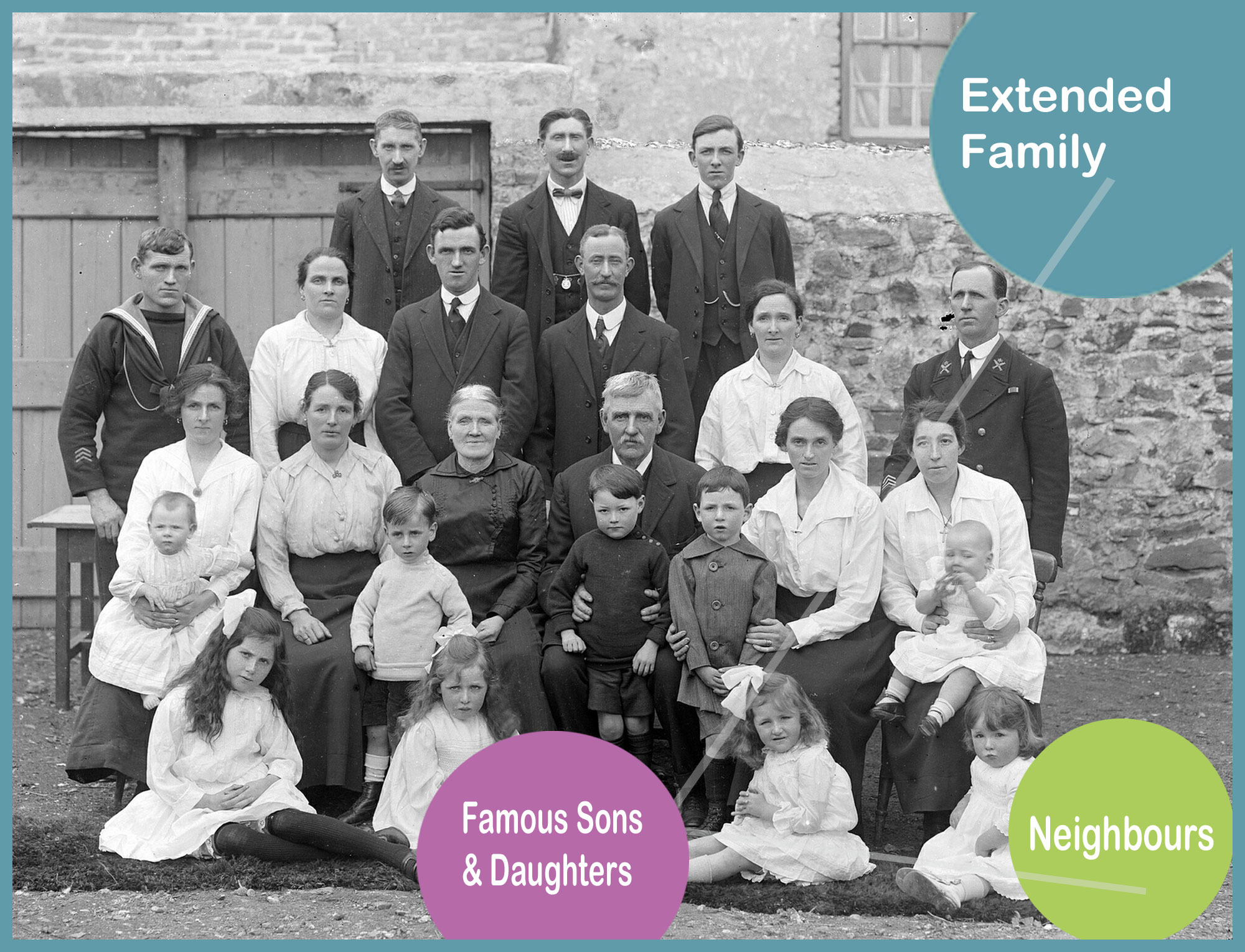Find your sources
The sources for a project are going to be all around you. Yes, we live in what is called a ‘digital age’ but lots of sources for projects do not have a digital footprint and as primary researchers the students should be prepared to engage in multiple forms of enquiry. The Internet is always a valuable source of information – even for projects concerned primarily about locality. Depending on your chosen topics, local libraries, businesses, churches, people, and organisations can be source of rich content. Students with access to grandparents and older members of the community may uncover information never recorded previously.
Things to consider
Always remember, the Internet is not the only source.
Family members provide a rich mine of information about the locality and events in it. Grandparents in particular can give you access to memory going back around 80 years. Grandparents may also recall what their grandparents remembered and that gives a reach going back to almost 150 years. Many parents and grandparents may come from outside Ireland and could present a unique source of information on events in their country of origin. Finding information from family is often about knowing the right questions to ask.
People in your locality outside of your family may also have participated in a notable event or may have family that did. Some people might be ‘local experts’, for instance a local historian or member of a historical society. Others in your area might have had an expertise in a trade or craft that is no longer popular, e.g thatcher, cooper.
Community groups can provide an insight into local life that may not be always obvious. They are often very keen to engage with research projects. Local sports clubs, for instance, are present in most communities and play an important role in the fabric of society. Members would have a great mass of folk memory about the area. It can be extremely interesting sometimes to compare the folk memory of sports and other events with the accounts in local newspapers, which can often be accessed online in local libraries, if not at school.
Libraries are hugely rich sources of information on many topics and the people in them are willing to help with their knowledge and expertise. Most libraries will have a dedicated section on ‘local history’ and they can provide access to a wide range of historical material about the area, including maps, photographs, documents and information. See http://www.librariesireland.ie/
Religious leaders, like the local priest minister or religious sisters, have a deep connection to many aspects of local life and are a potentially rich source of information for oral history. Parish and school records might be accessible and could provide rich information on people or events in the locality too. Indeed, tapping into the memories and experiences of people from different religions to that of the students might also be considered.
The key to unlocking sources is always knowing the right questions to ask.


